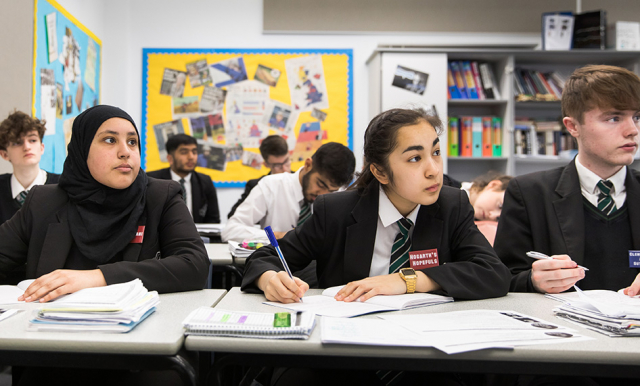Pupil Voice Survey: Views of history – within and beyond school

The Historical Association (HA) in conjunction with the University of Oxford Education Department are looking for schools to help carry out two very short questionnaires:
(1) with any students willing to share their views of the subject including, where relevant, their decision about whether or not to choose the subject at the point where it first became an optional subject and/or at subsequent transition points; and
(2) with any parents of students at the school, willing to share their own views of the subject and the extent to which they would encourage or support their child in opting for the subject.
This research offers scope to understand how the subject of history is perceived by a diverse range of young people and help history teachers in many different contexts to develop their curricula and promote the subject in ways that resonate with young people and their families, demonstrating the subject’s relevance and value to them. It will also help organisations like Royal Historical Society (RHS) and HA think about how we best support initiatives to help tackle these important issues.
The survey looks to elicit views covering Key Stages 3-5 and this can include colleges.
If you are willing to get involved please contact Dr Jason Todd directly at jason.todd@education.ox.ac.uk
Background and rationale
In 2018 the RHS highlighted racial and ethnic inequalities in the teaching and practice of History in UK Universities. The report drew attention to the fact that students from minoritised backgrounds are less likely than their peers to choose history in examination or university applications. This, in turn, meant that people from those backgrounds were underrepresented in UK University History departments. Historical & Philosophical Studies undergraduate student cohorts are overwhelmingly White, and have lower proportions of minoritised students (11.3%) than the overall UK undergraduate population (23.9%).
The RHS offered a fourfold rationale, intellectual, legal, demographic and ethical, for why this needs to be addressed, while suggesting that research in relation to history in schools might better help to understand how we might address the issues raised.
The Historical Association (HA) has been thinking about the engagement of Black and all BAME students with history at school for some time. In 2016 a Freedom of Information request was made to the DfE by the Historical Association. The response to this request indicated that of the students entered for history at A-Level only approximately 4% of students (in Year 13) were Black and 6% Asian. Care needs to be taken here not to overinterpret these statistics. Kay Traille’s pioneering work (Teaching History 127) with students and families of African-Caribbean descent reveals a deep interest and investment in history. Any research needs to account for the multiple and diverse ways students can engage with history, including the ways in which their family and community engage.
While we are interested in comparing the responses of students from minority backgrounds with those of other students, we are seeking to collect views from as wide a range of students as possible. We will not seek to target particular students, and will simply invite all those who agree to participate in the study to identify their background in terms of race and gender (using our suggested terms, or terms of their own choosing), allowing us to draw any comparisons between young people from different backgrounds.
If you are willing to get involved please contact Dr Jason Todd directly at jason.todd@education.ox.ac.uk

